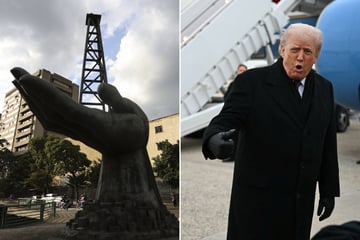Horse patrols halted amid outrage over images of border agents chasing Haitian refugees
Del Rio, Texas - The US Department of Homeland Security has temporarily halted the use of a horse patrol unit along the Del Rio, Texas, border with Mexico amid public outrage over a photo of a mounted US Custom and Border Protection agent chasing Haitian refugees.
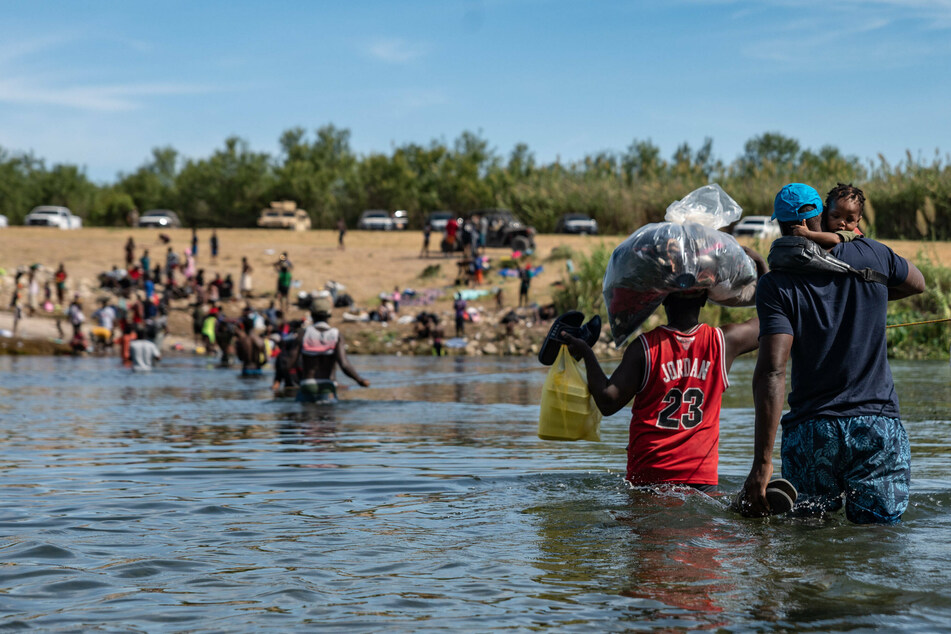
The image showed the agent on a horse wielding what appeared to be ropes or reins while chasing Haitian refugees trying to get back to an encampment where thousands of asylum-seekers had gathered. It has led Haitians, immigration, and civil rights activists for to call on the Biden administration to end its accelerated deportations to Haiti.
White House press secretary Jen Psaki said the policy change about the horse patrol was conveyed Thursday morning to civil rights leaders.
"That is something, a policy change that has been made in response," Psaki told reporters. "There is an investigation the president certainly supports overseen by the Department of Homeland Security, which he has conveyed what will happen quickly."
At its peak there were close to 15,000 people in Del Rio camping out underneath the bridge that connects the southern Texas city with Ciudad Acuña in Mexico. The majority of them were Haitian, with families accounting for about two-thirds of the asylum-seeking population. There have also been "a low number" of unaccompanied children as well, DHS acknowledged.
DHS did not have a specific breakdown on how many of the refugees returned to Haiti were part of a family units or single adults or children.
DHS caught off guard
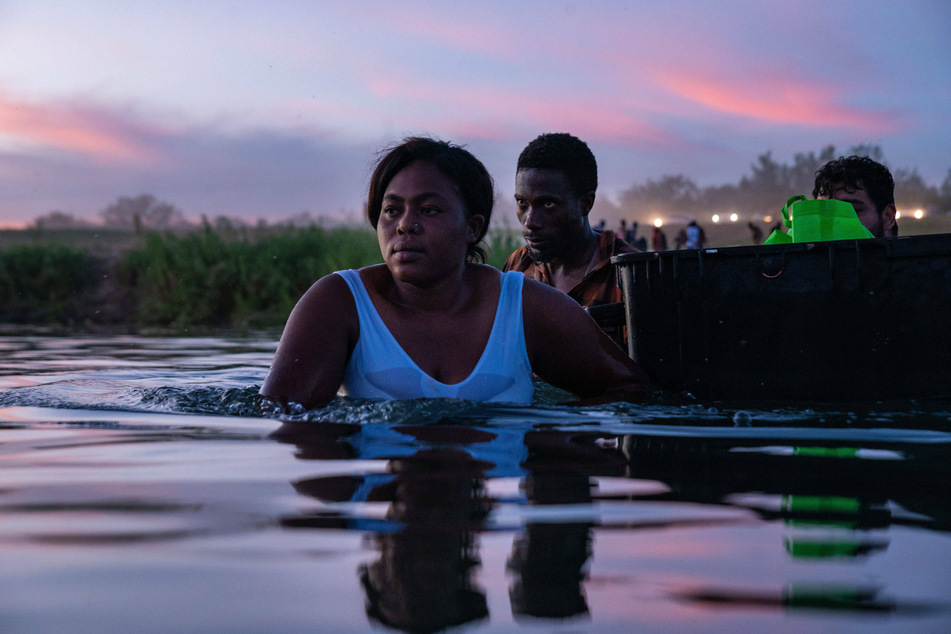
The United Nations’ leading children agency, UNICEF, said Thursday that more than two out of three Haitian refugees who have been repatriated to Port-au-Prince are women and children. Some of them are newborn babies.
UNICEF also estimates that about 40% of the Haitian refugees in Del Rio are children.
"Haiti is reeling from the triple tragedy of natural disasters, gang violence and the Covid-19 pandemic," said Henrietta Fore, UNICEF executive director. "When children and families are sent back without adequate protection, they find themselves even more vulnerable to violence, poverty and displacement – factors that drove them to migrate in the first place."
Even though DHS said it has been closely monitoring the flow of refugees throughout the hemisphere, they acknowledged that the scale of this recent surge caught them off guard.
"We did not have any intelligence to suggest that we would be seeing the surge in numbers that we saw," a DHS official said.
DHS believes that smugglers were involved in the surge at Del Rio and said it is actively investigating how thousands of Haitian refugees were able to move onto buses through Mexico to the US border without going detected.
"In terms of the movement last week, that is something we’re looking into actively," an official said.
Exploiting the suffering
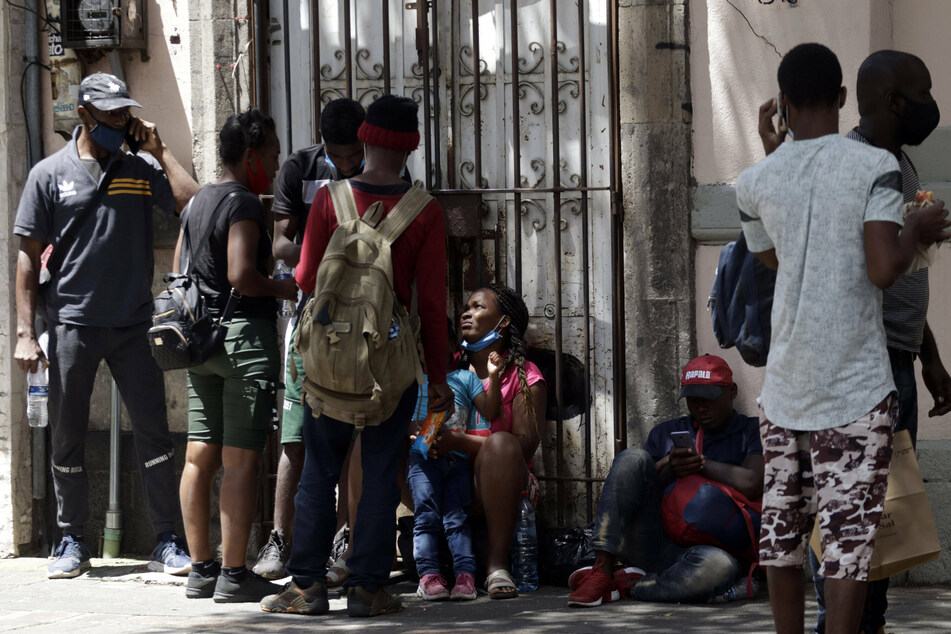
Far away from the US-Mexico border, human smugglers left a group of 71 people – reportedly Haitian – on an uninhabited Puerto Rican nature reserve, said Jeffrey Quiñones, a US Customs and Border Protection spokesman in Puerto Rico.
"It’s not the first time that these smuggling organizations, that move narcotics and move people, have left people on the island of Mona and they simply told them they had already arrived in Puerto Rico," said Quiñones.
Two groups arrived Wednesday and another Thursday in Isla de la Mona, a tiny, semi-arid island in the strait between Puerto Rico and the Dominican Republic that has no population or infrastructure.
They are presumed to be of Haitian origin, based on reports from Puerto Rico’s Department of Natural and Environmental Resources rangers who first came into contact with them, but confirmation is pending immigration interviews.
Stranding undocumented migrants in Mona is common for many human smuggling organizations, said Quiñones. At least one of the groups disembarked at Playa Las Carmelitas, a beach on the northwest part of the island that is a typical drop-off spot.
Haitians have also previously been left to fend for themselves on the rocks of Islote Monito, a neighboring cliffside cay, where they had to be rescued by the Coast Guard as recently as August.
"All-of-government response" as deportations continue
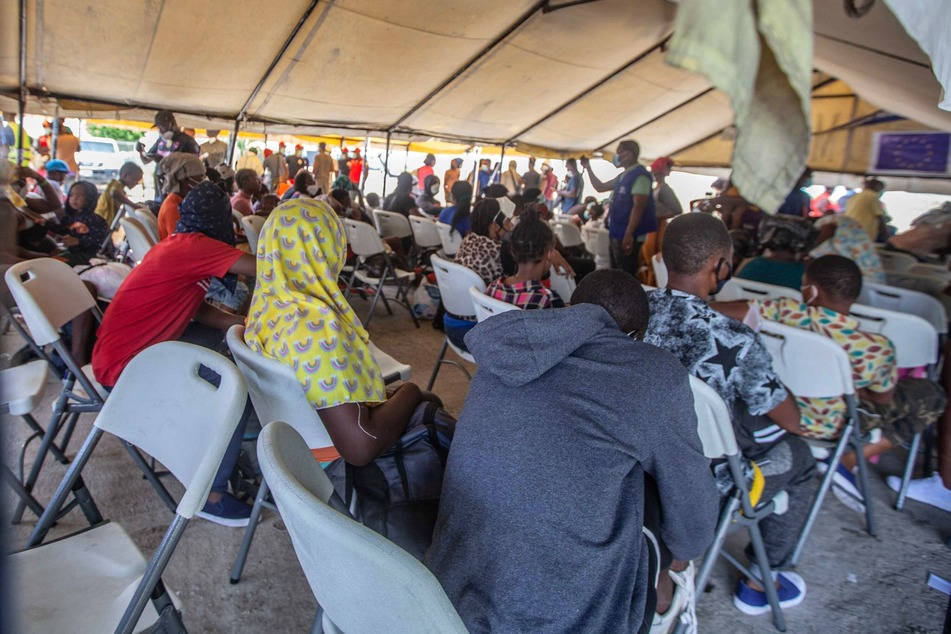
Since Sunday, there have been 13 flights to Haiti from the United States ferrying over 1,400 refugees while 3,200 Haitian nationals have been moved to other processing facilities. As of Thursday morning, the population underneath the bridge had dropped to 4,050 people, DHS said.
The population decline is not just the result of the processing of the refugees, but "several thousand" choosing to leave the camp and return to Mexico out of fear they would be deported back to Haiti.
Acknowledging that some refugees have been released or paroled with a notice to appear in immigration court or at a facility, DHS officials said Haitian refugees remain the subject of removal from the US under the controversial public health law known as Title 42.
The surge in Del Rio has led to "an all-of-government response" with more than 2,300 federal, state and local personnel deployed. This includes 150 medical professionals, as well as 50 state law enforcement officers from Florida, to help secure the border.
Florida also sent airboats and off-road vehicles to help with surveillance of the US-Mexico border, Florida Department of Law Enforcement spokesperson Gretl Plessinger said.
US authorities acknowledge that they have been coordinating with Mexican authorities on the migration problem.
Cover photo: IMAGO / ZUMA Wire
